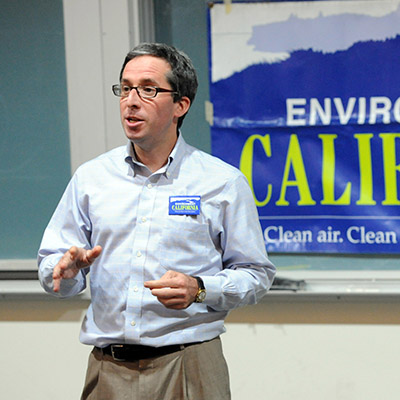
California as Lighthouse
The bottom line is, California is a great place to look for many of the answers the UN is struggling with as an agreement is negotiated. Governor Brown, Air Resources Board Chair Nichols, Senate Pro-Tem De León, Speaker Atkins and Speaker-elect Rendon, Senator Lara and more, all have experience tackling these hard issues and can offer strong leadership.
Today will conclude the first week in Paris where world leaders, environmentalists and others have gathered to try and stave off the worst impacts of global warming.
Key points in the treaty process
- Where will the money come from for poorer countries to get the energy they need for a growing economy? As you can imagine, the poorer countries want the richer countries to pay. Who is defined as a rich country and who is defined as a poor country? The poor countries want to ensure they get the money and the rich countries want to have more flexibility.
- Who and how will we monitor the emission reductions? In this part of the discussions, the tables are turned; the richer countries want to be able to monitor and enforce the reductions. The poor countries being monitored are not in favor of such stringent oversight.
While there are still a lot of differences on the table, most people here feel optimistic that we can reach a deal.
California should play the role of a lighthouse in the negotiations next week as we have dealt with many of the issues being discussed in Paris.
- We have imposed fees on polluters and ensured that at least 25% of the revenue from these fees is focused programs to reduce greenhouse gas emissions in disadvantaged communities.
- We have set a goal to put 1.5 million electric cars on California roads by 2025, and to ensure that disadvantaged communities have far greater access to electric vehicles.
- We have been putting solar on low-income houses for 9 years, and we have a new $1 billion, 10-year program to install solar panels on multi-family affordable housing projects.
- We are going to double our energy efficiency by 2030, which will provide jobs and better homes in low-income communities in California.
The one place where California still needs to learn is how to keep the oil in the ground. We are devastated by the impacts of oil drilling and fracking. California as the 3rd largest producer of oil in the USA needs to start the process of leaving it in the ground.
The bottom line is, California is a great place to look for many of the answers the UN is struggling with as an agreement is negotiated. Governor Brown, Air Resources Board Chair Nichols, Senate Pro-Tem De León, Speaker Atkins and Speaker-elect Rendon, Senator Lara and more, all have experience tackling these hard issues and can offer strong leadership.
Authors
Dan Jacobson
Senior Advisor, Environment California
Dan provides campaign strategy and policy guidance for Environment California's program and organizational plans. Prior to his current role, he worked as the state director of Environment California and the organizing director of Florida PIRG, among other roles. The Center for Energy Efficiency and Renewable Technologies (CEERT) named Dan a Clean Power Champion in 2019, and Capitol Weekly named him one of the “Top 100 Lobbyists” in California in 2008. Dan's areas of expertise include renewable energy, electric vehicles and ocean pollution, and he has successfully advocated for the passage of dozens of bills into law, including measures to ban toxic chemicals, bring 1 million solar roofs to California, and ban single-use plastic grocery bags. He ran the campaign for SB 100, California’s law setting a goal of 100 percent clean energy by 2045.

